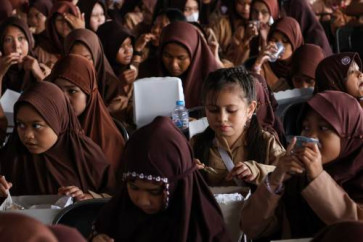Popular Reads
Top Results
Can't find what you're looking for?
View all search resultsPopular Reads
Top Results
Can't find what you're looking for?
View all search resultsNo such thing as a free lunch? Indonesia’s plans may prove critics wrong
Prabowo's signature free meals program presents a once-in-a-generation opportunity to provide a package deal that combines the highly popular program with the highly unpopular, but necessary, energy subsidy reforms through a political economy approach.
Change text size
Gift Premium Articles
to Anyone
P
resident Prabowo Subianto’s ambitious proposal to provide free nutritious meals to 83 million children, pupils and pregnant women has ignited fervent debate both domestically and internationally.
Commentators from international media like the Financial Times and The Economist have been quick to criticize the policy’s hefty price tag, which is expected to run into tens of billions of dollars annually.
While cautious scrutiny of Prabowo is certainly justified, not least because of his history of human rights abuses during his military career and populist rhetoric, it is important to dissect criticisms of this plan carefully.
At the heart of the criticism are generally two main concerns: implementation challenges and worries over funding. The first critique is valid: Rolling out kitchens and meal programs across Indonesia’s vast archipelago presents a monumental, logistical challenge.
Ensuring that funds are not lost to corruption or patronage, as has happened in a country like India, is essential. Transparent processes and vigilant oversight will therefore be crucial to the program’s success.
However, the more prevalent criticism focuses on funding. Detractors argue that, unlike infrastructural investments made under former president Joko “Jokowi” Widodo, which essentially pay for themselves by enhancing Indonesia’s productive capacity, free meals represent consumptive welfare with little return on investment.
This perspective overlooks the long-term benefits. Providing nutritious meals to schoolchildren who do not get those at home is, in fact, an investment in human capital. It improves academic performance, boosts future workforce productivity, enhances public health and helps break the cycle of poverty. By fostering children’s cognitive development, such programs contribute indirectly to future economic growth.



















